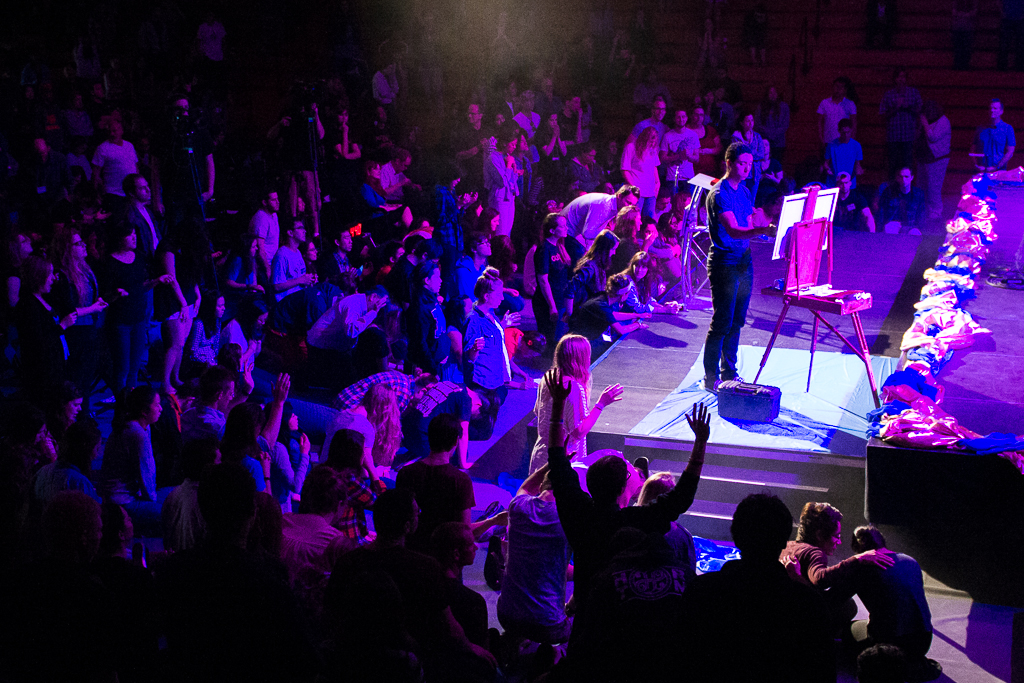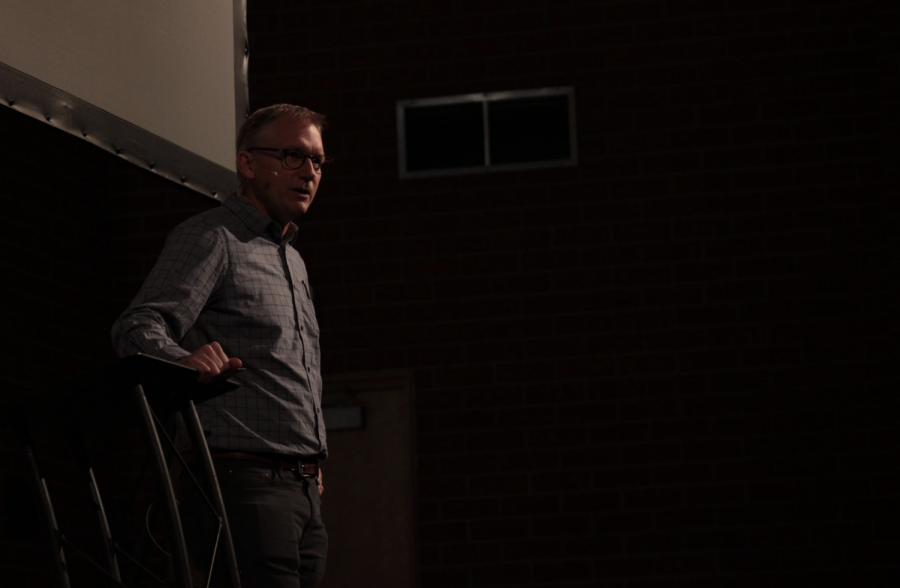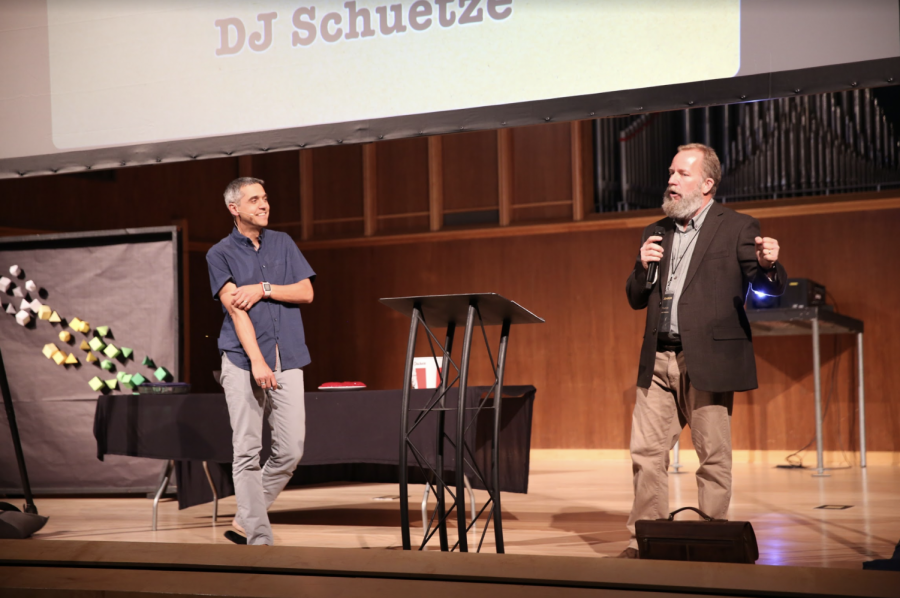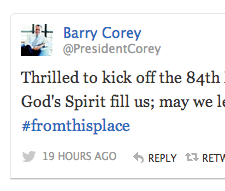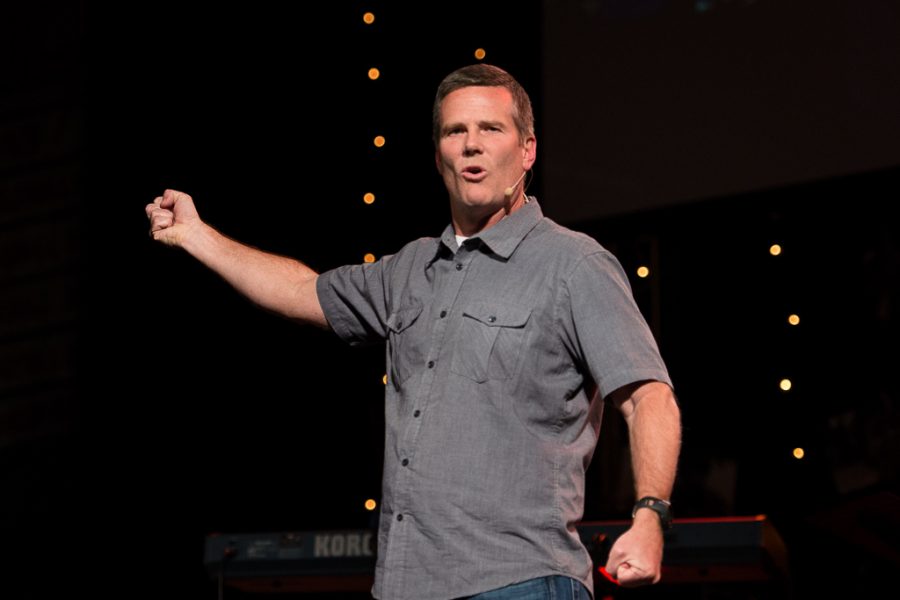The purpose of Missions Conference is to spark a passion for spreading the gospel to the nations. This is not to negate the call people have to do local missions, but it was not the focus of today. I can understand how this can make some people feel isolated, but it is important to acknowledge the good having the call to missions can have and today I saw the effect of what having an “altar call for missions” can have on people, as many knelt to pray to dedicate their lives to the mission field. It was a repurposing and rededication of lives to the mission field for many — myself included.
At today’s last session of Missions Conference, Suzie Inglis, a psychology alumna, recounted her story of how her senior year Missions Conference changed her life. Inglis never really planned on being a missionary, but after missing her chance to take the GRE, she felt God calling her to Argentina, she said. This was confirmed while she was at Missions Conference, where she felt that the emphasis was on South America and Latin America, she said. Eventually God opened the way for her to go to Costa Rica. She said that Missions Conference was a very pivotal time in her life, and that it could be a pivotal time in the lives of other students as well, should they allow it to be.
“If God asks you to do something great, he will be with you in that journey,” Inglis said.
Pastor Jimmy Seibert from Antioch Community Church in Texas walked attendees through a history of the church, starting with creation and going through the early church in Acts, up to telling stories of how the church is moving and thriving today. He used examples of things he had seen in Iran, Eastern Europe, Sumatra, Russia, the Arab Spring countries, Haiti, Syria and Saudi Arabia. When he talked about all of the Arab Spring countries coming to know Christ, and that many of them are now open and hungary for the gospel, I broke.
“Every country in the world is open. I just can’t guarantee you’re going to get out,” he said. This gave me hope that God can use me overseas.
I was especially encouraged when he spoke about the tactics they use to spread the gospel. The tactic he uses in church planting is to replicate the Acts 2:42-47 church, Seibert said. It is only when people are involved in a church that they are able to replicate it, he said.
Seibert also emphasized the importance of holistic mission, or caring for the physical and emotional needs of the broken simultaneously with the spiritual needs. This comes by having Christians distributed throughout the world in unreached places, doing the work God has called them to, sharing about Christ all the time, he said.
“We are integrated … We want to be Mother Theresa and Billy Graham,” he said.
Seibert’s worldview is that Jesus is at the center of life with all his people, he said. Since that will be the eternal reality — that Christians will dwell with Jesus and his people — it should be a current reality, he explained. With Jesus and his people at the center of Seibert’s life, he can then focus his attention on any medical, social justice, artistic, political, sports, educational, community and business needs, he explained. The key to transforming society is not that every person does their own thing, but that the church as a community ministers to people, he said.
Seibert encouraged those at the conference to stand and pray that God would put a passion for a nation on their hearts. Then, he asked that those who felt called to go to that nation to go up to the front to be prayed for.
“God has given you a nation. The only question is, what is that nation?” Seibert asked.



